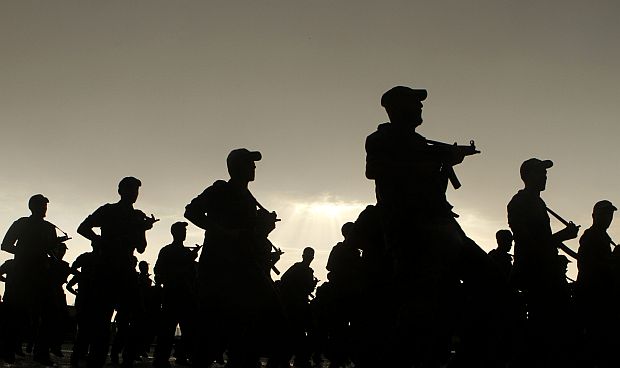Ever since the Gulf States became the main suppliers of global energy, there has been a state of turmoil inherent in the region caused by regional and global powers due to a conflict of interest between the two. The driving forces behind this unrest are constantly being renewed—as one crisis reaches a resolution, another erupts in its place. The region has witnessed three major wars over the past three decades: the Iran-Iraq War (1980-1988), the Gulf War (1991) and the Iraq war (2003). The repercussions of the Gulf War were felt until the early years of the 21st century, and the 2003 US invasion of Iraq was certainly influenced by this earlier conflict.
More than 30 years after the establishment of the Gulf Cooperation Council (GCC), the security of the region today is facing unprecedented structural and ideological challenges for a variety of reasons. The biggest reason for this is that GCC efforts to create a joint security system for the Gulf have not evolved to the extent that this can respond ably to the threats facing the region. Over the past 30 years, the strategic and political situation has changed, both regionally and internationally, with the Gulf facing increasingly grave threats.
The first strategic change has been the major shift in the way the current US administration deals with regional security. President Barack Obama’s policies differ radically from those of successive former Republican presidents Ronald Reagan and George H. W. Bush, between 1980 and 1992. During this period, US foreign policy was based on securing a direct alliance with the countries of the region, considering the area friendly to the West and outside of Soviet ambitions. The Gulf also served as a buffer zone between the US and potential threats from Iran and Iraq. This foreign policy can be viewed in terms of the US arms deals with regional states, such as providing Saudi Arabia with the Airborne Warning and Control System (AWACS) or providing Kuwait with F-18 fighter jets. In addition, the US administration’s interest in protecting the region became clear through Washington’s strong and decisive position on the issue of Iraq’s occupation of Kuwait. The US launched a major war against Iraqi forces, liberating Kuwait from Saddam Hussein. The liberation of Kuwait in 1991 had profound effects on the Gulf security system. Iraq no longer played its traditional role of counter-balancing Iran, with the Gulf ultimately taking up the slack.
From another perspective, the GCC’s reliance on US protection transformed into a policy of “importing” security, by which I am specifically referring to the security agreements signed by the GCC with the US and other Western countries. These conventions resulted in the establishment of permanent and non-permanent US military bases in the region, which essentially used the Gulf states as deterrents against Iran. This system continued through the administration of former President Bill Clinton between 1992 and 2000 until the US invasion of Iraq, led by former President George W. Bush in 2003, which led to the overthrow of Saddam Hussein.
Just as the Iraqi invasion of Kuwait and its subsequent liberation had a profound effect on the region, so too did the occupation of Iraq. The 2003 US invasion of Iraq represented the peak of American involvement in the detailed workings of the region. Since then, and due to the extent of the United State’s human and material losses in the country, Washington has significantly restricted its involvement in regional issues.
The financial crisis of 2008-2009 accelerated this definitive decline in US interaction within the region, because it meant the US had to refrain from using its military force to resolve disputes, given how easily this could devastate the US economy. This trend has manifested itself in how the US is dealing with the Syrian crisis and the Iranian nuclear crisis today. When Syrian President Bashar Al-Assad crossed Obama’s “red line” and used chemical weapons against his own people in September 2013, Obama referred the idea of imposing a military strike to Congress. Opposition to the military strike arose from Republican and Democrat congressman alike. This refutes the hypothesis that Republicans automatically support the use of military force, and confirms that the majority of Americans are opposed to the idea of US foreign military intervention.
In terms of the Iranian nuclear crisis, the Gulf has always bet on the continuation of hostilities between Iran and the US, and even foresaw the prospects of a US military strike against Iran. The GCC did not consider any other alternatives, not realizing that Washington’s policies and priorities were changing until after it signed an interim nuclear agreement with Iran in Geneva last year. This change in US policy has been parallel with Iran’s gaining momentum in the region. The Iran of today is not the Iran of the 1980s, which was isolated, besieged, and fighting a fierce war for survival. The Iran of today has expanded its influence in Iraq and Syria, supporting embattled Syrian President Bashar Al-Assad even as the Arab Spring has successfully ousted other regional leaders. Iran’s ally in Lebanon, Hezbollah, is now politically and militarily stronger than at any time before, while Russia is also seeking to strengthen its global and regional presence amid the emergence of a new Cold War between East and West.
Based on all of this, it is imperative that the Gulf states change their perspective on security, reconstruct regional and international policies, fortify their internal security and introduce effective initiatives to protect the region’s stability for the medium and long term.
The counterpoint to this article can be read here.
